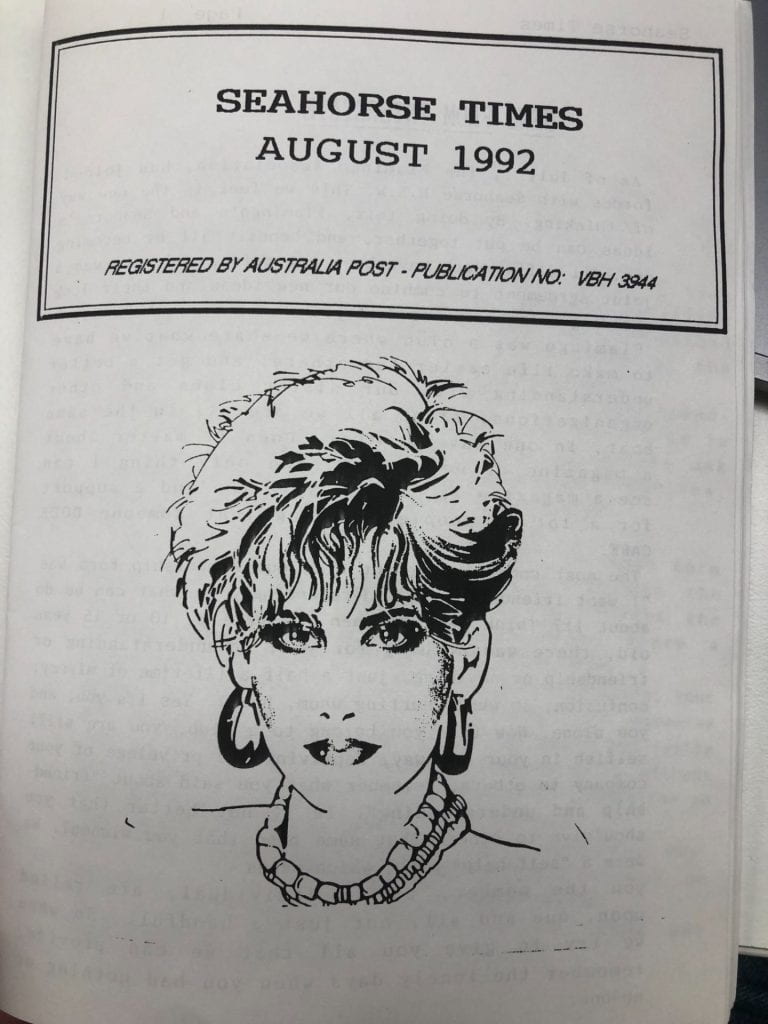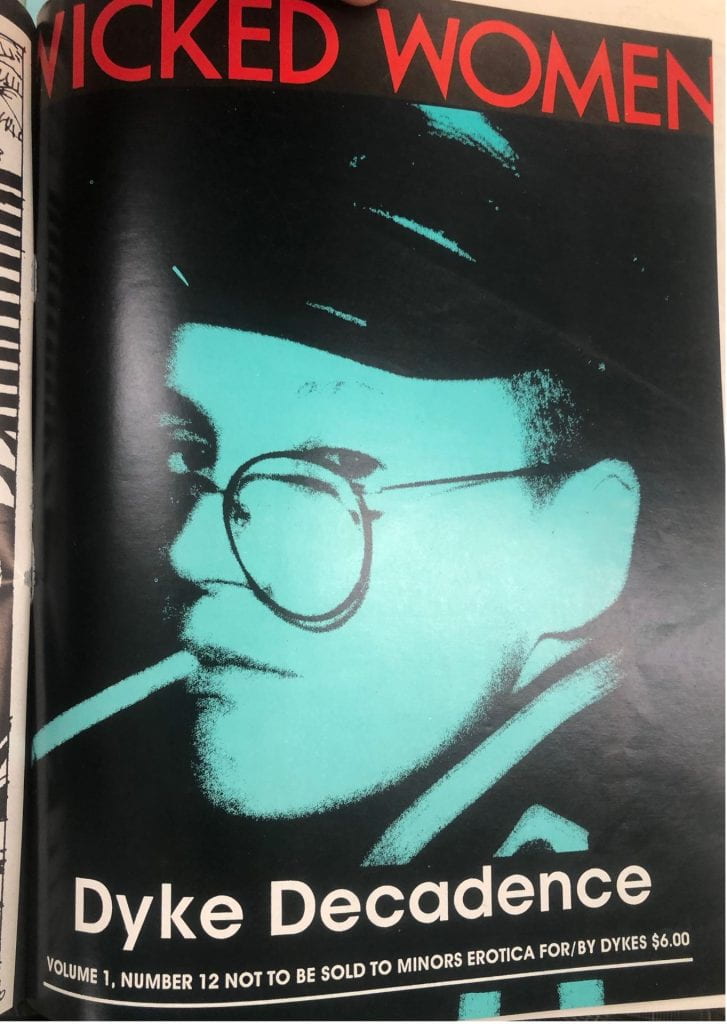
Meet Hansen PhD Scholar Seth McKellar
The Hansen Trust, established to advance the study of History at University of Melbourne, includes an annual PhD scholarship to the doctoral program in History in SHAPS. In 2023 the scholarship was awarded to Seth McKellar, who is investigating the history of transness and gender deviance.
Tell us about your PhD project
My research lies at the intersection of History and Trans Studies, focusing on feelings of gender incongruence in so-called Australia during the 1990s and early 2000s. I’m conducting semi-structured interviews with trans (or otherwise gender nonconforming) people to forge an oral history. I’m also enriching this work with archival newsletters from the era in focus, specifically the Seahorse Newsletter/Times (Melbourne/Naarm) and Wicked Women (Sydney/Gadigal).
I’m using a theoretical framework that draws upon the work of French philosopher Maurice Merleau-Ponty. His work didn’t really discuss gender deviance, but parts of his ideas can be fruitfully transposed onto transness. His philosophy gives weight to people as subjects of knowledge. In his 1945 Phenomenology of Perception, he describes phenomenology as something that “tries to give a direct description of our existence as it is” (Merleau-Ponty 1962, vii). In my study I apply these ideas to thinking about trans people and how it ‘feels’ to be trans. Historically, trans people have been pathologised as objects of medical and legal knowledge. Countering this by developing new framing with a view to giving authority to trans subjects, has become a hallmark of Trans Studies, and my research is part of this endeavour.
This theoretical framework also allows us to consider the body outside the realm of its assigned sex. It provides fertile ground for reconceptualising the configuration of trans bodies beyond just male and female. Merleau-Ponty’s theory helps us put to one side our habitual and everyday perceptions, to re-examine the meaning ascribed to certain bodies. Gender scholar Galye Salamon’s 2010 book, Assuming a Body, which uses phenomenology to trouble the materiality of the body, also animates my work.
This incitement to question common understandings of sex and gender is particularly pertinent within the colonial context of so-called Australia, in which binary, Western conceptions of sex were and continue to be “imposed through colonial incursion”. Sandy O’Sullivan emphasises that terms such as Brotherboy and Sistergirl “and others yet to come, allow for an expansive kinship structure”, that “form[s] a challenge to the forced induction of communities into western religious practices that exclude and demonise relationships that fall outside of linear family structures”. Coloniality and coercive gendering continues today, which is not surprising given the potent historical coproduction of race and sex.
My work seeks to historicise those people in Australia who felt gender incongruence in the 1990s to early 2000s. I do this by investigating the language they used to describe themselves, and the social conditions surrounding them that pushed their bodies into certain shapes. In this way, I want to avoid assuming ‘trans’ as an identity category and, instead, grapple with the complexities of how the interviewees’ subjectivities were forged over time and space. In this way, I can also avoid using the label ‘trans’ as a neo-colonial tool that foists Western terminology onto those it does not accurately describe, and instead defer to the subjects themselves. By bringing together phenomenology, oral testimonies and archival newsletters, my research aims to open new lines of inquiry around trans.
What kind of sources will you be using in your research?
I’m conducting semi-structured interviews with people who were alive and aware of some kind of gendered feelings outside of the hegemony in the 1990s and early 2000s. The decision to use interviews was informed by my drive to privilege the experiences of a historically oppressed group, as well as what historian C Riley Snorton calls the “ethical imperative of being with” in his book Black on Both Sides. To be with and among trans and gender diverse elders is integral to the design of my research. It is fortifying to collate an oral history archive of elders who have such rich experiences. So many of them went through legal, medical and social hardship within systems that often dehumanised them. It is humbling to hear about the adversities they faced and systems they altered or made anew in ways that make my life easier today.
Trans oral history is flourishing overseas, with the field of trans studies solidifying within academia over the last two decades. There is, however, much less scholarly work in and about Australia by trans people themselves. Roberta Perkins’s 1983 ethnography, The Drag Queen Scene, is one example. Perkins collected data through semi-structured interviews with transsexual and/or cross-dressing sex workers in Sydney’s Kings Cross. She provides a rich understanding of the varied experiences of these social groups in the 1970s in Australia. Prior to Perkins’s research transsexual and/or cross-dressing sex workers had not been compassionately represented. Perkins deferred to their narratives about their lives, which departed from the mainstream misconceptions of transsexuality at the time.
Interviews are my primary source of data but they will be complemented by the Seahorse Newsletter (which became the Seahorse Times in November 1990) to provide a richer context on people’s ‘felt sense’ of gender incongruence.

The Seahorse Club of Victoria is a group that was set up in 1975 for self-described transsexual women and transvestites in Melbourne, and circulated newsletters to subscribers. I’m looking at the newsletters published in the 1990s and early 2000s. The Seahorse members were largely white, middle-class, heterosexual, suburban cross-dressers, who mostly called themselves men, as well as transsexual women. The group still exists today and, in contemporary parlance, is a “support and social group for the Victorian transgender community”.
Additionally, I am using Wicked Women (1988–1996), a dyke magazine co-founded by Lisa Salmon and Jasper Laybutt to provide insight into the experiences of butches, dykes and F2Ms from the time. I’m also excited to read the material associated with Boys Will Be Boys, a support group for transgender men founded by Laybutt in 1991. These materials have just recently arrived at the Australian Queer Archives. The Queer Archives have been incredibly helpful and generous in providing materials for my research and I would recommend scheduling a visit to anyone looking at queer history.

What led you to postgraduate studies in History?
I was drawn to postgraduate studies in History because it is a rigorous discipline that can be useful for marginalised groups in the present day. History can help counter the narrative of newness associated with gender deviance and ‘trans’. While it is largely no longer the primary aim of trans scholars to prove their existence within their chosen scholarly field, I nevertheless feel compelled to collect oral testimonies of these historically maligned people, given the current cultural and political climate around ‘trans’ both here and overseas.
However, we still need to remember that usage of the term ‘trans’ is quite a recent phenomenon. Specifically, ‘transvestite’ is a term coined in 1910 by Dr Magnus Hirschfeld; ‘transsexual’ was popularised in the 1950s by Dr Harry Benjamin; and the current understanding of ‘transgender’ comes from Leslie Feinberg’s influential 1992 pamphlet, Transgender Liberation. Through collecting oral testimonies from a living archive and supplementing it with extant archival material, I hope to produce work that can be useful for trans people in the present day.
Which historians animate your research and writing?
Historian Susan Stryker, who is among those who birthed the academic field of transgender studies, strongly influences my work. Specifically, I like her way of troubling the notion that trans is a “category or class of people, things or phenomena” (Stryker et al. 2008, 11). Instead, Stryker highlights the surrounding megastructures and institutions that enforce a binary sex paradigm. Rather than relying on identitarian categories, Stryker historicises subjectivities and shows how so-called trans issues are actually everyone’s issues.
C Riley Snorton has also been incredibly inspiring to read, particularly his analysis of the coproduction of race and sex during racial slavery in the United States. Like Stryker, Snorton rejects rigid identity categories, stating in Black on Both Sides:
I eschew binaristic logic that might reify a distinction between transgender and cisgender, black and white, disabled and abled, and so on, in an effort to think expansively about how blackness and black studies, and transness and trans studies, yield insights that surpass an additive logic.
While it is very much within the historical discipline to avoid imposing present-day categories onto figures from the past, due to inaccuracy and anachronism, Snorton also strays from the strictures of the field, stating: “this book fails at writing history, sometimes unintentionally but also intentionally”. I think this compellingly shows his readers that History cannot ever be complete and that truth is open to endless revision.
What would you tell people interested in pursuing History?
If you’re an undergraduate, I’d recommend taking a variety of subjects that focus on different historical eras to get a sense of the kinds of history you may be interested in researching and writing. There are also great resources such as academic skills advisors who can help you structure your arguments and find resources. If you’re considering graduate research, it’s also worth taking some time to work out what topics interest you. I was keen to start a PhD candidature straight after my Honours but benefited from taking a couple of years out – first, to take a break from study but also to see what archives existed and read secondary literature on a variety of issues. If you’d rather work autodidactically on any kind of gender history, I would suggest reading Stryker’s 2008 book, Transgender History: The Roots of Today’s Revolution, for a comprehensive resource for analysing primary sources.
What does receiving the Hansen Scholarship mean to you?
Receiving the Hansen Scholarship, and its generous donation by the Hansen Little Foundation, will undoubtedly benefit the quality of my research, making it possible for me to work full-time on my thesis and relevant coursework. Because I’m not working a second job to sustain my PhD candidature, I’ve had time to conduct in-depth interviews and visit archives, ensuring my work is rigorous and research deep. The gift allows me to dedicate my time to my project, and the people it will come to represent the time and care they deserve.
I feel honoured to receive this significant scholarship that enables me to undertake research that will historicise a group of people during a time that, so far, has largely been overlooked, ultimately collating and archiving stories that would otherwise be lost. The Hansen Scholarship has been established to underline the continuing relevance and importance of History and to nurture and engage community passion for this important field of study. Especially during a time when trans people face an increasing amount of legal discrimination, this research contributes to the survival of our narratives.
To read more about previous Hansen PhD scholars and their work:
- Ines Jahudka (2022)
- Georgia Comte (2021)
- Cat Gay (2020)
- Bronwyn Beech Jones (2019)
- Max Denton (2018)
- Nathan Gardner (2017)